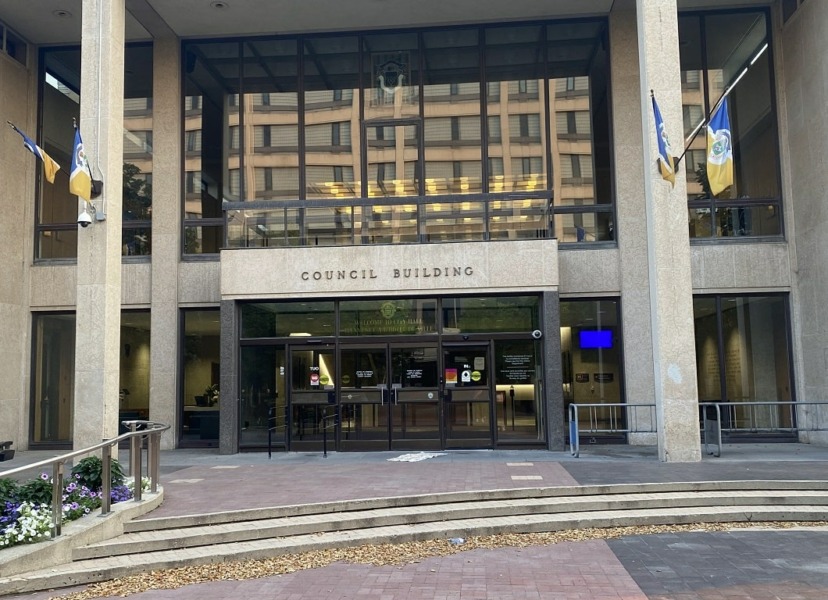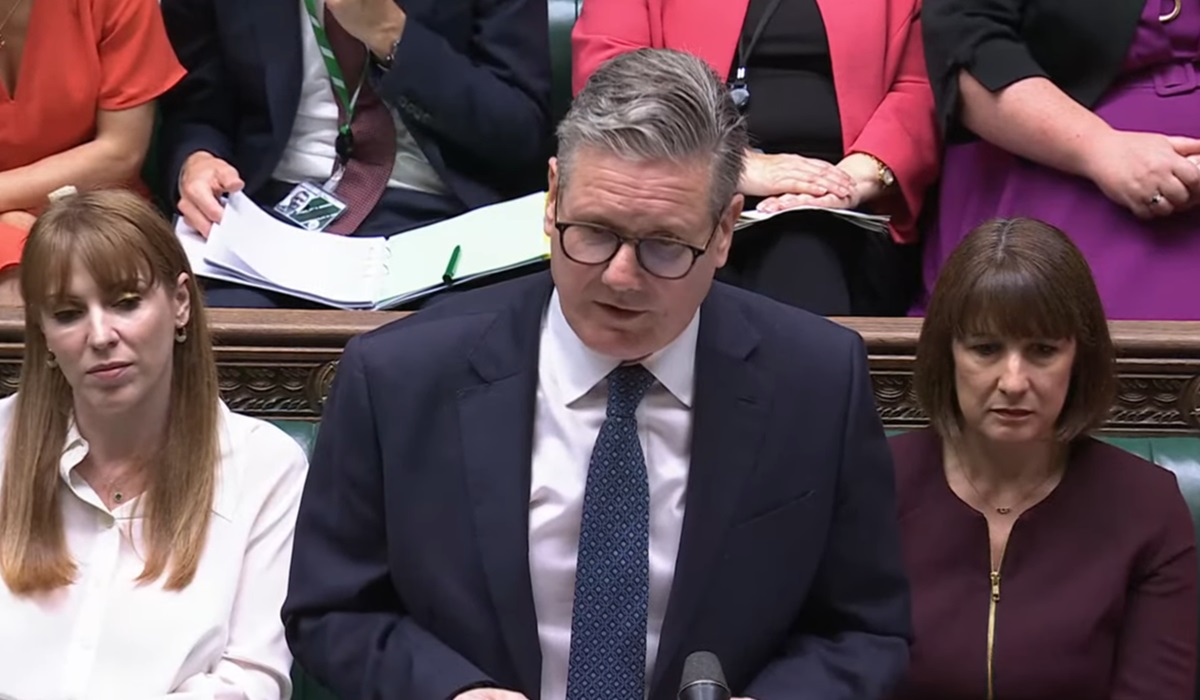Winnipeg City Hall Blunders on Parker Lands, Accelerate Federal Government Calls for Oversight
- TDS News
- Breaking News
- Trending
- September 18, 2023

As Winnipeggers approach a provincial election in just over three weeks, the lack of action and silence from the Mayor, City Council, provincial government, and opposition party leaders is nothing short of a disappointment when asked to address City Hall’s disturbing behaviour with interfering with the Parker Lands Development.
Like many other Canadian cities, Winnipeg is mired in a severe housing crisis, plagued by a rising homeless population and dismally low vacancy rates. The situation is nothing short of dire, yet the leadership from Winnipeg City Hall appears to be consistently falling short. Despite months of calls from concerned citizens, those in power have failed to address this crisis head-on.
This inaction is even more perplexing because it has taken the Leader of the Federal Conservative Party, Pierre Poilievre, to step in and take the reins. This situation raises a fundamental question: Why did this issue fail to garner full and central attention from the Canadian Federal Government, the Minister of Housing, or the Canada Mortgage and Housing Corporation (CMHC)? This question becomes even more pertinent when considering that Manitoba hosts the Minister’s Regional Office (MRO). This office has a specific mandate to ensure that matters concerning the Prairie Provinces maintain a prominent position on the radar of federal leadership. These Prairie Provinces issues are expected to be presented and discussed in the weekly briefing to the Cabinet.
Why did it take such a considerable amount of time for the federal government to introduce the initiative, and why did they do so just days after the opposing party leader made his announcement? This initiative challenges municipalities to construct additional housing and reduce bureaucratic obstacles. It involves the creation of the Accelerator Fund, a $4 billion program offering incentives to cities to build another 100,000 homes by 2025. As an example, London, Ont. received $74 million with the commitment to expedite the construction of 2,000 new homes.
Pierre Poilievre stated that Winnipeg recently lost a legal case after attempting to obstruct the construction of 2,000 homes near public transit systems. Poilievre criticized the Trudeau government for financially supporting bureaucratic barriers that hinder new housing projects through increased funding to local governments. He proposed a practical solution: connecting federal funding for local governments with the number of new homes constructed in their cities.
Under his plan, major cities would be compelled to authorize a 15 percent increase in housing construction to qualify for federal infrastructure funds. Those exceeding this benchmark would receive additional incentives. Poilievre emphasized that funding should be tied to completed homes, ensuring tangible outcomes rather than empty promises. Furthermore, to secure federal funds for new transit stations, cities would be obligated to permit the construction of new high-rise apartments in the surrounding areas, promoting convenient living for seniors and students near public transportation hubs.
The City of Winnipeg’s treatment of developer Mr. Andrew Marquess, the owner of Gem Equities, is a glaring example of the bureaucratic hurdles that have hindered the construction of 1900 much-needed affordable housing units. A recent judgment against the City of Winnipeg awarded Gem Equities $5 million for the City’s deliberate slowing down of this housing development.
This was a decision the City of Winnipeg appealed with the hopes of having it overturned. The court ruled City Hall was wrong in its treatment of Gem Equities, and the Federal Government and Leader of the opposition concluded that the process of how municipalities operate across the country concerning housing construction needs to change. So, Does Mayor Gillingham and City Council also agree with the court and Federal Government there is a problem? Or do they share the same perspective as City CAO Michael Jack that the court ruling had fundamental errors within the case?
It is a disgraceful episode that reflects the wasted opportunity to provide homes for Manitobans, particularly when the homeless population is estimated to range from 1,500 to 2,500 individuals. It also underscores a lack of understanding of governance and the role of elected officials and city administrators.
“It’s time the City of Winnipeg dropped its pursuit of appealing the court’s ruling at the expense of the Winnipeg taxpayers. What they should be doing, is working with developers like Mr. Marquess with shovel ready projects and tap into the Federal Government’s Accelerator program to build more houses.” Said Don Woodstock
Mr. Marquess’ unlike many developers, has the patience and resources to fight City Hall, its bureaucrats and its army of lawyers in a court of law. He had to incur massive ongoing legal costs that have surpassed a couple of million dollars and are climbing. Then you tack on the added stresses, and lost revenues could skyrocket to over $100,000,000. That being said, Mr. Marquess provided the blueprint for those who can afford to challenge City Hall’s interference and what citizens called bullying tactics.
Furthermore, former Mayoral candidate Mr. Don Woodstock deserves recognition for his persistent efforts to draw media attention to the troubling situation at City Hall. However, the media’s failure to delve deeper into the issue leaves many Winnipeggers wondering if they and Mr. Woodstock are owed an apology for not demanding more accountability and transparency regarding the crisis unfolding in their City.
In a time when the desperate need for housing meets eager contractors and builders willing to invest, the silence surrounding City Hall, the provincial government, and party leaders is deafening. The housing crisis in Winnipeg is not a matter that can be glanced over or wished away. It demands urgent attention, action, and accountability from those entrusted with the City’s and its residents’ wellbeing.
As we grapple with the ongoing housing crisis, one thing remains clear: the path forward is uncertain. It remains a pressing question of who, from the City of Winnipeg or the province of Manitoba, and which party leader will rise to the occasion and truly champion the needs of the citizens. However, amidst this uncertainty, one aspect is undeniably clear and definitive: Winnipeg desperately needs new leadership. Seeing this call for change arise barely a year into the new administration’s tenure is disheartening.
If Mayor Gillingham and members of the City Council choose to resign, it’s a resignation the citizens would readily accept. Yet, as the next election is still a few years out, voters should carefully consider their choices, refraining from voting for any council member seeking to jump into the mayoral race.
The future of Winnipeg requires leaders who are not only part of the solution but also have a proven track record of dedication and a clear vision for a better city. Choosing leadership to guide the City toward progress and prosperity is crucial as it moves forward. In 2022, Winnipeg’s citizens should take a different path and elect a Mayor without prior experience as a Winnipeg City Councillor. Repeating the same actions while expecting different outcomes is the very essence of irrationality and insanity.








